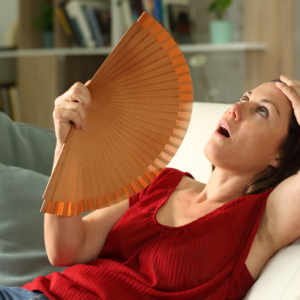Menopause and Nutrition: Maximizing Your Absorption of Nutrients
Menopause can be a challenging time for many women, with changes to the body and hormone levels. Which is why maximizing our nutrient absorption after menopause is crucial. One of the biggest changes is how nutrients are absorbed in the body. It’s important to understand why and how it changes so that you can maximize absorption.
Why Nutrient Absorption Is Different After Menopause
After menopause, your body’s processes change significantly. This includes changes to digestion, making it harder for your body to absorb nutrients from food. This is because during menopause, your digestive system loses some of its ability to break down foods due to a decrease in stomach acid production. Additionally, estrogen levels drop during this time, which also affects nutrient absorption in the small intestine where most nutrients are absorbed.
How To Maximize Nutrient Absorption After Menopause
There are several ways women going through menopause can increase nutrient absorption.
Eating fresh, whole foods is an effective way to ensure that the body is getting enough vitamins and minerals for optimal health. Whole food options like fruits, vegetables, legumes, nuts, and seeds are all ideal choices as they have fewer additives or preservatives compared to processed foods. Eating smaller meals (but not recommended for insulin resistant woman) throughout the day can also improve the body’s ability to digest food and absorb nutrients.
Additionally, including healthy fats in your diet such as avocados and nuts can help the body absorb fat-soluble vitamins which are essential for overall health; these include vitamins A, D, E, and K.
It is also beneficial to incorporate probiotic or fermented foods into your diet because they contain good bacteria which helps support optimal gut health- a key factor in nutrient absorption.
Examples of probiotic-rich foods include yogurt, sauerkraut and kimchi. To gain even more of the benefits found in these probiotic-rich foods it is best to look for those labeled as “live active cultures” on their packaging.
Taking a daily supplement may also be beneficial for those who don’t have time to shop for or prepare fresh food regularly; however it is important to consult with a healthcare professional before doing so as not all supplements are created equal.
Taking these steps will help ensure that you’re getting all the necessary vitamins and minerals needed for optimal health during and after menopause!







